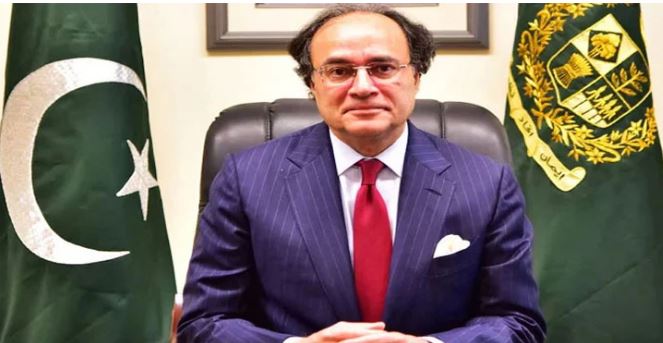ISLAMABAD (HRNW) Federal Minister for Finance and Revenue, Senator Muhammad Aurangzeb, has announced that the current International Monetary Fund (IMF) programme will be Pakistan’s last.
The IMF package is not just for the federal government but for the entire country, said Aurangzeb, in a press conference held in Islamabad. He stressed the importance of implementing tough decisions to ensure economic stability.
Pakistan has availed 24 IMF programmes since becoming a member of the International Monetary Fund (IMF) in 1950. The most recent programme is a 37-month Extended Fund Facility (EFF) approved in September 2024.
“We need to adopt a new approach. If we are saying that this is going to be the last programme of IMF, we have just embarked on, we have to change the DNA of the economy fundamentally,” the minister said while addressing a press conference here. He was accompanied by the Chairman Federal Board of Revenue, Rashid Mahmood Langrial.
Aurangzeb said, there were two main reasons for going to International Monetary Fund (IMF) for Extended Fund Facility (EFF) which include bringing permanence to macroeconomic stability and executing critical reforms under homegrown economic agenda.
He warned that failing to take these measures now would result in further burdening the salaried class. The finance minister also highlighted the need to control the growing population to achieve sustainable development.
Aurangzeb pointed out the inevitability of increasing tax revenues but emphasised that tax collection authorities must respect human rights. He mentioned the government’s plan to extensively use technology and announced the establishment of digital checkpoints to combat smuggling.
Aurangzeb also discussed efforts to reduce prices in collaboration with provincial governments. He urged all four provinces to focus on price control committees to manage inflation. He noted that when petrol prices decrease, transportation fares should also be reduced.
Furthermore, the finance minister shared that there had been open discussions with the World Bank and IMF regarding climate financing. He stated that the World Bank would provide funding and technical support for climate-related initiatives.
Reaffirming the government’s resolve to implement homegrown structural reforms, Federal Minister for Finance and Revenue, Senator Muhammad Aurangzeb emphasized the crucial need to bring fundamental changes in the DNA of the country’s economy, leading to an export-driven model, thereby fostering sustainable growth.
He said, that macroeconomic stability, creates a foundation and “if the foundation is not strong, we cannot construct a house. “If we have to go for inclusive and sustainable growth, it has to be on the background of the macroeconomic stability,” he remarked.
The minister said the macroeconomic stability has continued during the first quarter of the current fiscal year, however, it needed permanence to lead to sustainable growth. “Macroeconomic stability is not an end in itself, it is a means to an end,” he remarked.
